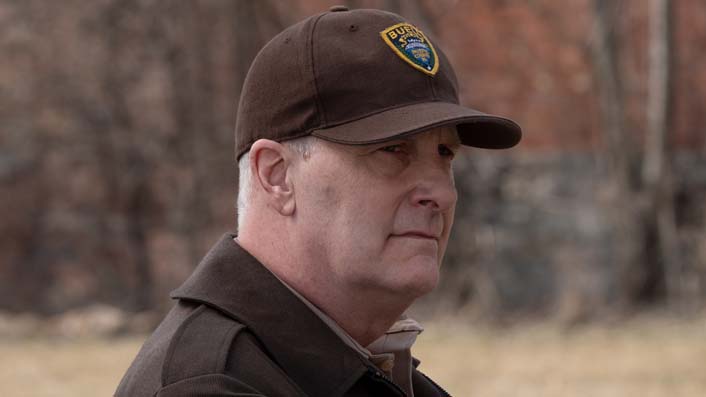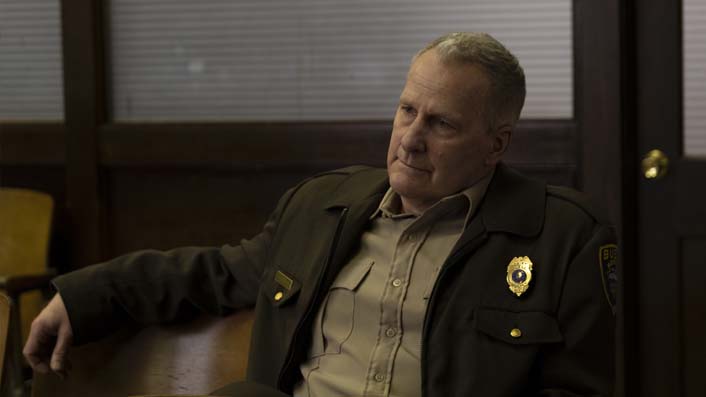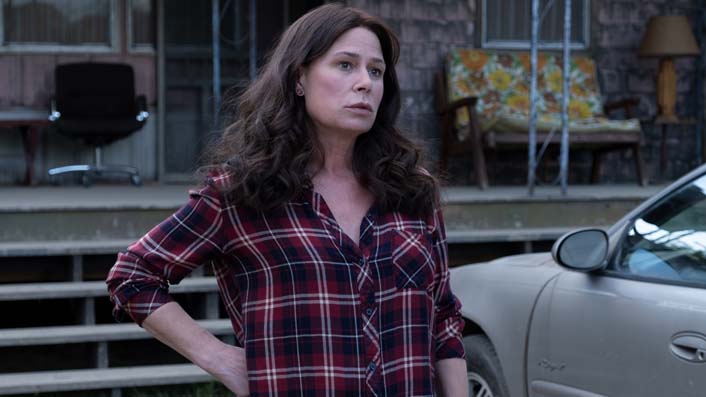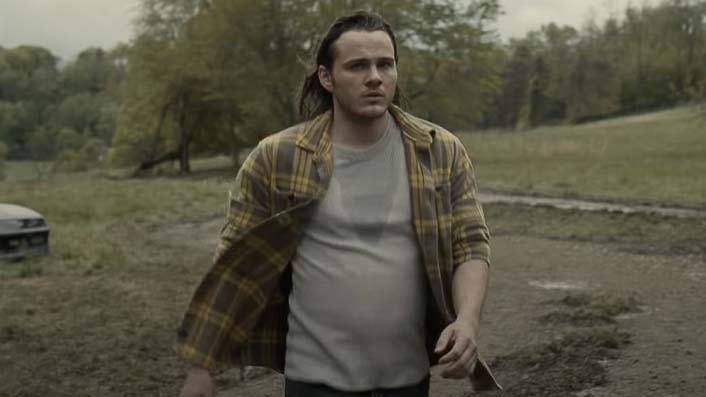Jeff Daniels follows in Mare of Easttown’s downtrodden footsteps with American Rust

American Rust stars Jeff Daniels as a police chief in small-town America. For Steve Newall, the Paramount+ exclusive resembles another recent TV detective tale—only with more disappointment, rust, and pills.
Kate Winslet breathed new life into the troubled small-town detective genre this year, and now Jeff Daniels looks to follow in her footsteps. Like Mare of Easttown, American Rust seeks to authentically portray life outside the big smoke, rural idiosyncrasies and all, while a murder investigation unfolds. And as we saw with those fellow Pennsylvanians in Easttown, family ties and the shadow of the past inform the investigations taking place in increasingly dead-end-seeming circumstances.
For Mare in particular, not to mention most of her fellow Easttown residents, the difficulties of life were temporarily held at bay by the bottle. American Rust, in contrast, is set in the early 2000s, as the opioid epidemic was closing its deadly grip on everyday Americans—like those seen here in the fictional town of Buell.
Beset by high unemployment and surrounded by the decaying infrastructure of closed steel mills, there’s a hopelessness in search of a salve. And as the opening minutes of American Rust demonstrate, it’s to be found in pharmaceuticals. Everyone’s on pills. Crushed pills, swallowed pills, dry-chewed pills, pill dust rubbed on the gums—pills, pills, pills, pills, pills.

Chief Bud Harris (Daniels) is no exception. A war vet who’s been highly medicated since as long as he can remember, he freely admits he has no idea what baseline normal is. Awash with uppers and downers, Harris is trying to titrate his dose down with the help of his friendly pharmacist—so high are his doses that he can only bring it down by a small percentage at a time.
What’s the American Rust of the title? It could be the mills and buildings decaying, the decline of the middle class, the crippling financial burdens for both the unemployed and dwindling blue collar workers, the pharmaceuticals festering inside so many citizens, or the sense of hopelessness and outlived usefulness that suffuses the citizens who seem stuck in Buell.
It could be all these things, or something else—more prosaically, it could simply be the rust particles found in the hair of a murder victim.
As the victim’s body is (graphically) autopsied, we see just what the effect of all those pills on the community of Buell actually is. The victim’s particulars are added to the bottom of a whiteboard list of completed autopsies, “homicide” being an outlier following a long string of repeated “drug overdose” as the only other cause of death requiring forensic investigation.
Chief Harris comes across the body at the end of the first episode after an anonymous tip is called in, and he will soon find himself entangled from more than just an investigative angle. By the time the body is found, American Rust has sketched out the sort of small-town entanglements one would expect, interconnected lives that will inform Harris’s impulsive next steps.

Harris has a bit of a thing going on with dressmaker Grace Poe (Maura Tierney), who’s at risk of eviction, still married to a sort-of-estranged sack-of-shit husband, and whose son Billy had a run-in with the law some months prior. As we see in flashback, Billy’s actions—as justified as they may seem—have consequences for his own future, the officer who collars him, and for Harris himself, with Grace far from impressed her lover has booked her son. Harris tried to look out for the kid back then, we see, and badly wants to put things right with Grace.
So, when Billy’s connected with the body discovered in the mill, Harris makes a snap decision to help him out—despite the victim being closely interwoven with both Harris and Billy’s recent past, and attracting perhaps a bit too much scrutiny to simply massage the case away behind the scenes.

While this is all going on, American Rust explores other plotlines that reek of their own sense of entrapment and consequences. Billy turned down a prestigious college football scholarship to stay in Buell—to look out for his mother, he reckons, but it seems more tied to an inability to move on from former flame Lee (who returns to town to stir things up some more). While Lee has been living a glamorous big city life, her brother David has been left caring for their ailing father, trapped in a parental caregiver relationship he’s not cut out for and keeping things bottled up that he has trouble trying to express.
All these storylines tell their own stories of deterioration and coping, and all intersect in a broad, community-wide scope that lays bare American Rust‘s origins as an acclaimed novel by Philipp Meyer.
At the centre of it all is Jeff Daniels’ weary, impatient performance—a man himself bottling things up (threatened at one point by Grace with the concept of a feelings chart to express himself). Haunted by his past, buckled but not broken, Harris is neither a white or black hat, but in possession of enough moral compass to seek the least bad future out of largely disappointing possible outcomes.
Around him, of course, there’s all that damn rust… and all those damn pills.

















